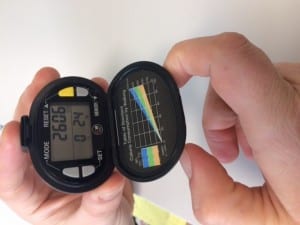The government guidelines state that we should be aiming for at least 150 minutes of moderate aerobic activity every week or a mixture of moderate and vigorous activity. Moderate physical activity may include walking, swimming, cycling, gardening, hiking, dancing (and the list goes on!).
For a lot of people, walking is an easy, fun and social way to reach the recommended government guidelines for physical activity and there is an increasing amount of people using pedometers. A pedometer is a device that counts a person’s steps, enabling people to monitor their physical activity levels over time. Since 2011, the sales of pedometers have increased dramatically and one well-known pedometer company, Fitbit, sold more than 15 million devices in 2017, increasing from 58,000 a year in 2010.
Pedometers are easily available and cheap (ranging from £1- £100+), provide quick feedback of physical activity levels and they can encourage people to increase their own step counts or to compete against others.
However, pedometers may encourage an unhealthy competitiveness and negative comparisons with others. People may feel tempted to ‘settle’ with a certain step count, for example ‘10,000 steps is enough for today!’, or people may prioritise walking over other health behaviours, such as swimming or cycling, to reach a step count target. It is not unheard of for people to attach pedometers to their pets!
Pedometers provide an easy and fun way for people to engage in their physical health and have been recognised as motivational devices. Evidence suggests that pedometers are associated with an increase in physical activity. However, people should be aware of the potential limitations of these devices and not be too hard on themselves if they don’t reach their own previous step counts, other peoples or the famous 10,000 steps per day!!
By Hayley Robinson
